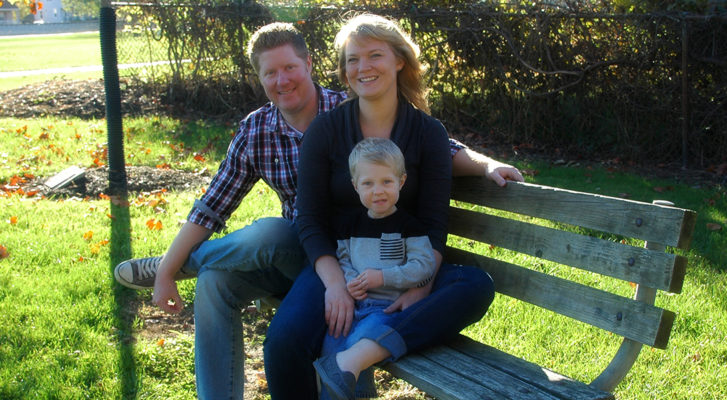Mothers. Mothers are the reason I decided to become a maternal fetal medicine physician. I am in awe of them each and every day. Their determination for doing what’s best for their babies is nothing short of inspirational.
I recall witnessing maternal determination when, as a young faculty member early in my career, I took care of a pregnant patient who was hospitalized and on bed rest. What was unique about her situation is that she laid with her bed tilted and her head below her feet for the entirety of her 10-week bed rest. Her amniotic membranes ruptured leaving the fetus with little fluid around it and her cervix several centimeters dilated (at that time, it was felt that bed rest with the patient’s head down would allow recollection of amniotic fluid and delay delivery). Her determination was amazing to me.
It was after that moment I realized that while almost all mothers will do everything they can to maintain a healthy pregnancy, mothers who receive a fetal diagnosis will take any exhaustive measure necessary to make a positive change for their babies. Motivation is contagious and I wanted to use my experience to help them achieve it.
Since then I’ve met some inspiring and courageous mothers and families with whom I have had the privilege of treating and I am grateful for their trust in me. Maternal fetal medicine (MFM) has made great strides in the last couple of decades and I have had the honor of guiding parents through their medical diagnoses.
But despite the many advancements we’ve made in MFM, parents still face difficult decisions when it comes to the outcome of their pregnancy and the baby’s health. So how do they make decisions when they are faced with difficult scenarios and outcomes?
I like to advise parents to think of themselves as a pilot getting ready for take-off. I am a pilot, and before I embark upon any journey in the air, I have a checklist of items that I have to do before I can proceed. In my opinion, making difficult decisions about the outcome of a pregnancy can be approached in a similar manner. Here are a few suggestions that I recommend families think about before making a decision:
- Get the best information possible.
With the best information, parents can make the most informed decisions. I recommend that families not only do their homework on their baby’s condition, but to find a fetal center that has the most experienced maternal fetal medicine specialists, with the best outcomes and imaging capabilities. The Society of Maternal Fetal Medicine is a good place to start. - Make decisions based on information, not fear.
Often times when parents receive a fetal diagnosis, they have difficult decisions to make. Many of them are not black and white; and sometimes there is no right or wrong answer. I recommend that parents collect as much information as possible to determine the risks involved with their decision: the certain, the predictable, and the unknown. Looking at choices from a logical place rather than a place of fear can help parents make the best decision for their family. - Try to stay in the solution rather than the problem.
This is most certainly easier said than done, but staying focused on the solution can help parents go from a place of grief to a place where they talk about next steps. Trying to stay productive can help parents make sound decisions. - Surround yourself with love and support.
This may sound obvious, but parents deal with their emotions in very different ways. Some choose isolation. Others choose to let their friends and family members in. The parents that I see who surround themselves with their loved ones tend to be in the best place mentally. Opening up to friends and family members can help parents mentally process what is happening in their lives. - Have the serenity to accept the things you cannot change.
This may seem counter-intuitive coming from a physician who does fetal interventions, but many events in our lives are out of our control. I see parents blaming themselves for the medical condition of their unborn babies and the reality is that the vast majority of parents who come to the Cincinnati Fetal Center did absolutely nothing to contribute to the situation.This is where speaking with experts and doing research can help parents come to a place of acceptance. With proper information, understanding can hopefully follow. The majority of the fetal conditions, diagnoses and abnormalities have no known causes, which means that there is no medical evidence to support any claim that parents could have done something differently to avoid of the situation that they are in.
While every pregnancy is a little bit different and every family comes to the Cincinnati Fetal Center for a different reason, there are some common threads between them. They have difficult decisions to make. They’ve just been given news that has taken them off the “routine pregnancy” route and onto a journey of finding the best course of action for their baby. There is a unique bond formed with families when helping them through their care and treatment and I feel fortunate to be a part of it every single day. I get strength from their strength and courage from their courage. I only hope that I am able to in a very small way “return the favor”.







Thank you from the bottom of our hearts Dr. Van Hook for being a part of our CDH journey with Lila. You are such a blessing to the Cincinnati Fetal Care Center. Wonderfully written blog!